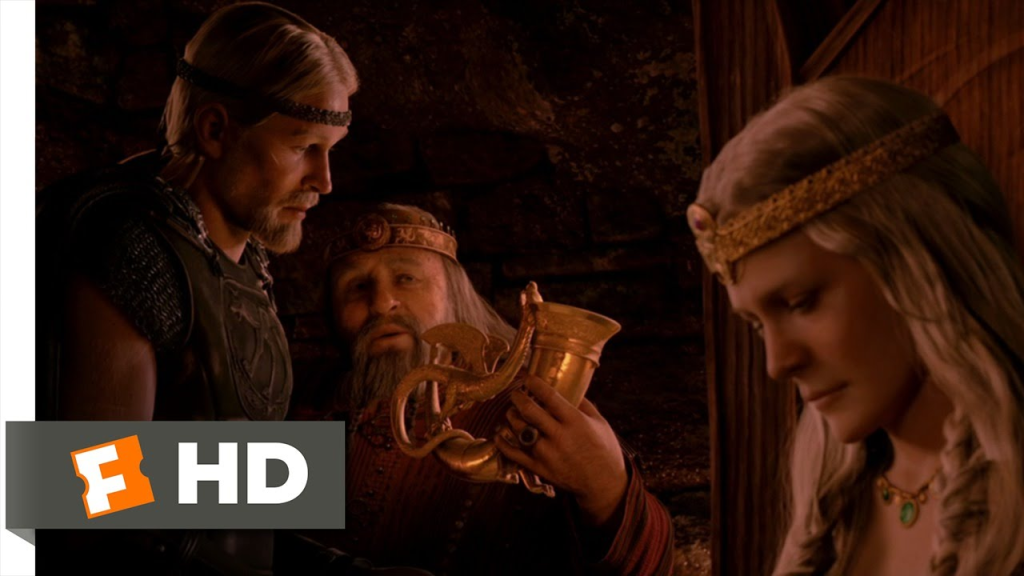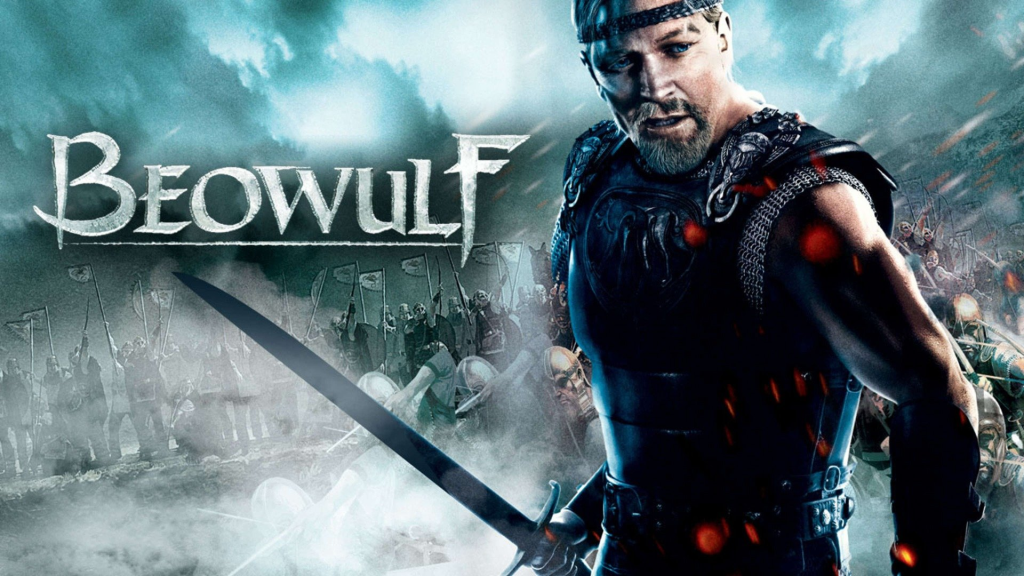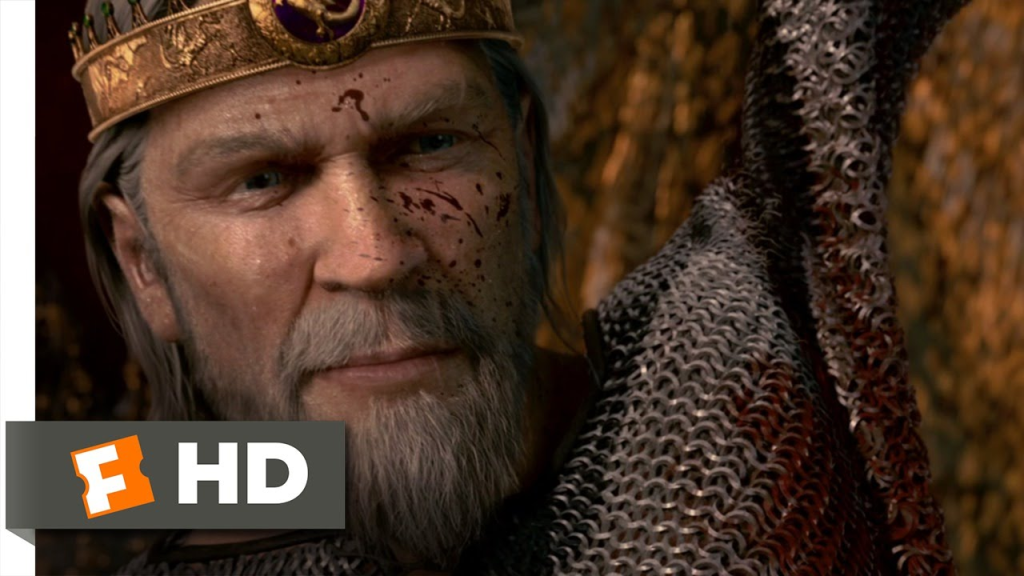Beowulf (2007): A Bold Reimagining of an Epic Legend
Beowulf (2007), directed by Robert Zemeckis, is a visually striking, motion-capture animated film that reinterprets the ancient Old English epic poem Beowulf for a modern audience. Blending mythological grandeur with cutting-edge technology, the film brings to life the tale of a heroic warrior battling monstrous foes in 6th-century Denmark. With a screenplay by Neil Gaiman and Roger Avary, and a star-studded cast including Ray Winstone, Angelina Jolie, Anthony Hopkins, and Crispin Glover, Beowulf transforms the classic text into a dark, action-packed spectacle that explores themes of heroism, legacy, and human frailty. This article provides a comprehensive introduction to the film, covering its origins, plot, cast, themes, production, reception, and enduring impact.

Background and Inspiration
The Beowulf film is an adaptation of the anonymous Old English epic poem, written between the 8th and 11th centuries, considered one of the cornerstones of Western literature. The poem chronicles the exploits of Beowulf, a Geatish warrior who travels to Denmark to slay the monstrous Grendel, his mother, and a dragon, cementing his legend. The original text is a blend of heroic saga, Christian allegory, and pagan mythology, rich with themes of honor, fate, and mortality.
Director Robert Zemeckis, known for films like Forrest Gump (1994) and The Polar Express (2004), sought to reimagine Beowulf using motion-capture technology, a technique he pioneered in The Polar Express. The screenplay, penned by fantasy icon Neil Gaiman (Sandman) and Roger Avary (Pulp Fiction), takes liberties with the source material, infusing it with psychological depth, moral ambiguity, and modern sensibilities. Produced by Paramount Pictures and Shangri-La Entertainment, the film was released on November 16, 2007, in both standard and IMAX 3D formats, capitalizing on its groundbreaking visuals to immerse audiences in a fantastical world.

Plot Summary
Set in 6th-century Denmark, Beowulf follows the titular hero (Ray Winstone), a Geatish warrior renowned for his strength and bravery. The story begins as King Hrothgar (Anthony Hopkins) and his hall, Heorot, are terrorized by the monstrous Grendel (Crispin Glover), a grotesque creature driven to madness by the sounds of human revelry. Beowulf arrives with his loyal thanes, including Wiglaf (Brendan Gleeson), to slay the beast and win glory. After a brutal confrontation in Heorot, Beowulf defeats Grendel by tearing off his arm, but the victory comes at a cost, as Grendel’s seductive and enigmatic mother (Angelina Jolie) emerges to seek revenge.
Unlike the poem, where Beowulf kills Grendel’s mother, the film introduces a twist: Beowulf succumbs to her allure, striking a Faustian bargain that promises power and glory in exchange for a dark secret. He returns to Hrothgar’s court claiming victory, but his deception haunts him. Years later, as king of the Danes, Beowulf faces the consequences of his pact when a dragon—born of his past—threatens his kingdom. The climactic battle sees an aging Beowulf, now grappling with his legacy and mortality, confront the dragon in a desperate bid for redemption, with Wiglaf by his side.
The film diverges from the poem by emphasizing Beowulf’s flaws, portraying him as a boastful hero undone by pride and temptation. This reinterpretation adds psychological complexity, framing the story as a meditation on the cyclical nature of power and the cost of ambition.

Cast and Characters
Beowulf boasts a stellar ensemble, with actors’ performances captured via motion-capture and rendered into stylized animated avatars. Key cast members include:
- Ray Winstone as Beowulf: Winstone lends grit and charisma to the titular hero, portraying him as both a fearless warrior and a flawed man wrestling with pride and regret. His motion-capture performance, enhanced to depict a muscular, idealized Beowulf, contrasts with his later, weathered appearance.
- Angelina Jolie as Grendel’s Mother: Jolie’s seductive, otherworldly portrayal reimagines the character as a siren-like figure, dripping with gold and menace. Her performance is a standout, blending allure with danger.
- Anthony Hopkins as King Hrothgar: Hopkins brings gravitas to the aging, guilt-ridden king, whose past sins set the story in motion.
- Crispin Glover as Grendel: Glover’s motion-capture work creates a tragic, tormented creature, whose physical deformity and sensitivity to sound evoke both horror and pity.
- Supporting Cast: Brendan Gleeson as Wiglaf, Beowulf’s loyal friend, and Robin Wright as Queen Wealthow, Hrothgar’s conflicted wife, add emotional depth. John Malkovich as Unferth, a skeptical thane, and Alison Lohman as Ursula, Beowulf’s young mistress, round out the ensemble.
The motion-capture process allowed actors to fully embody their roles, with facial expressions and movements translated into animated characters, though some critics noted the uncanny valley effect in their lifelike-yet-stylized appearances.

Themes and Style
Beowulf explores themes that resonate with both the original poem and modern audiences:
- Heroism and Hubris: The film deconstructs Beowulf’s heroism, portraying his boasts and victories as tainted by pride and moral compromise. His deal with Grendel’s mother underscores the cost of seeking eternal glory.
- Legacy and Mortality: The aging Beowulf’s confrontation with the dragon reflects on the fleeting nature of fame and the inevitability of death, a core theme of the poem.
- Temptation and Corruption: The seductive Grendel’s mother embodies temptation, drawing parallels to mythological sirens and biblical narratives, while Hrothgar and Beowulf’s failures highlight the cyclical nature of human weakness.
- Myth vs. Reality: The film questions the reliability of heroic tales, suggesting Beowulf’s legend is built on half-truths, a modern twist absent from the poem.
Stylistically, Beowulf is a visual feast, blending motion-capture animation with 3D technology to create a hyper-realistic yet fantastical world. The film’s aesthetic draws from Nordic mythology, with sweeping landscapes, cavernous halls, and grotesque monsters. Its action sequences, particularly Beowulf’s naked fight with Grendel (strategically obscured for a PG-13 rating), are dynamic and visceral, while the dragon battle is a thrilling spectacle. The score by Alan Silvestri, featuring haunting choral elements, enhances the epic tone, though some modern songs, like “A Hero Comes Home” by Idina Menzel, add a contemporary touch.

Production and Technology
Directed by Robert Zemeckis, Beowulf was a pioneering effort in motion-capture animation, building on techniques used in The Polar Express. Filmed using a volume capture stage, actors wore sensor-laden suits to record their movements, which were then rendered into detailed digital characters. This allowed for expressive performances but sparked debate over the “uncanny valley,” where characters appeared almost-but-not-quite human. The production, budgeted at approximately $150 million, leveraged IMAX 3D and RealD 3D formats to enhance immersion, with Zemeckis aiming to “make the audience feel like they’re in the movie.”
The screenplay by Gaiman and Avary took bold liberties with the source material, drawing criticism from purists but praise for its narrative innovation. Producer Steve Starkey noted the goal was to “tell a story that’s accessible but respects the poem’s spirit.” Filming took place in 2005, with post-production focusing on refining the animation and 3D effects. The film’s release in November 2007 capitalized on the growing popularity of 3D cinema, following successes like 300 and The Nightmare Before Christmas 3D.

Release and Reception
Beowulf premiered on November 16, 2007, in the United States, with international releases following in late 2007 and early 2008. It grossed over $196 million worldwide against its $150 million budget, a moderate success bolstered by 3D ticket sales. The film was rated PG-13, balancing intense violence and suggestive nudity to reach a broad audience, though some argued for an R-rated cut to fully embrace its darker elements.
Critical reception was mixed but generally positive, with a 71% approval rating on Rotten Tomatoes. Roger Ebert gave it 3.5/4 stars, praising its “stunning visuals” and “bold reimagining,” though he noted the animation’s uncanny quality. Critics lauded the action sequences and performances, particularly Jolie and Glover, but some felt the deviations from the poem diluted its mythic weight. The New York Times called it “a fascinating experiment in digital storytelling,” while others, like The Guardian, criticized its “video game-like” aesthetic and narrative liberties.
Audience reactions, reflected in IMDb’s 6.2/10 rating, were divided. Fans of fantasy and action embraced the spectacle, with Amazon reviews calling it “visually breathtaking” and “a fun, dark epic.” However, purists and some viewers found the motion-capture uncanny and the story’s changes jarring. The film’s 3D presentation was a major draw, with theaters reporting strong IMAX attendance.

Legacy and Impact
Beowulf holds a unique place in cinema history as a bridge between traditional animation and live-action filmmaking. Its motion-capture technology influenced later films like Avatar (2009) and The Adventures of Tintin (2011), though the technique fell out of favor as CGI and live-action hybrids advanced. The film’s bold adaptation sparked academic discussions about translating ancient texts for modern audiences, with scholars debating its fidelity versus its emotional resonance.
The film also contributed to the resurgence of Beowulf in popular culture, alongside adaptations like the 1999 Beowulf starring Christopher Lambert and the 2005 Beowulf & Grendel. Its exploration of flawed heroism paved the way for darker fantasy epics, such as Game of Thrones. While not a cultural juggernaut, Beowulf remains a cult favorite among fans of fantasy, animation, and Zemeckis’s oeuvre, appreciated for its ambition and visual innovation.

Where to Watch
As of May 2025, Beowulf is available on streaming platforms like Peacock, Amazon Prime Video, and Paramount+ (availability may vary by region). It can also be rented or purchased on VOD services like Apple TV, Google Play, and YouTube. Physical copies (DVD/Blu-ray) are available through retailers like Amazon, with some editions including 3D versions. Check JustWatch for current streaming options.
Conclusion
Beowulf (2007) is a daring, visually spectacular adaptation that breathes new life into an ancient epic. Robert Zemeckis’s use of motion-capture technology, combined with a stellar cast and a provocative script by Neil Gaiman and Roger Avary, creates a film that is both a thrilling spectacle and a meditation on heroism’s complexities. While its deviations from the source material and uncanny animation divided critics, its bold vision and technical achievements make it a landmark in 2000s cinema. For fans of fantasy, action, or literary adaptations, Beowulf offers a captivating journey into a world of monsters, heroes, and haunting truths, cementing its status as a flawed but fascinating cinematic epic.

